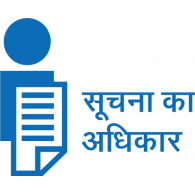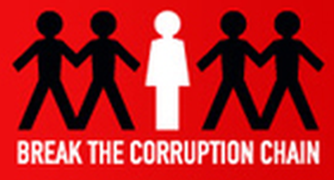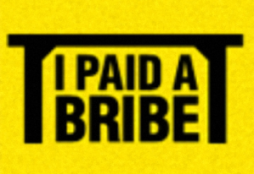When many of us think of government corruption, we picture shady backroom deals, where dirty money is exchanged for illicit favors in a dark haze of cigar smoke. But corruption can be much more subtle than that.
 Government service is a sacred trust. Government officials are elected with the intent of making a better life for the people of their nation. They are guardians of public money, and their job is to use that money to improve the lives of the public.
Government service is a sacred trust. Government officials are elected with the intent of making a better life for the people of their nation. They are guardians of public money, and their job is to use that money to improve the lives of the public.
But, as the old saying goes, “Power corrupts.” Not everyone who is elected to a position of public trust proves worthy of that trust. Instead of focusing on the needs of the people and how to best serve them, oftentimes these officials are intent on how to serve themselves.
Corruption isn’t just about graft, at least not directly. Corruption is an attitude. When government officials lord their power over others simply to make themselves feel more powerful, that is corruption. When bureaucrats fail to implement programs meant to help the public, then blame the public for their own failure, that is corruption. When representatives of the government care more about currying the favour of the rich for their own benefit than about addressing the needs of the poor, corruption has triumphed over true civil service.
In an environment of ubiquitous government corruption, many people just accept bribery as inevitable. But bribery has long-term, far-reaching consequences, especially for the poor. As global poverty research site Poverties.org bluntly said, “Bribes suck a significant share of the poor’s income.” The rich line their pockets with the bribes from the poor—who, in turn, get progressively poorer.
But why would people pay money they can ill afford to corrupt government officials? When corruption is so ubiquitous that it has long been the norm, most people will accept it as inevitable.
The website I Paid a Bribe tracks both bribe payments (including amounts paid) and refusals to pay bribes. There have been over sixty-seven thousand reports made so far. Of those, only four percent detail refusals to pay a bribe. Over half of the registered reports recount bribes paid to public officials. This data is continually analyzed to extract trends, showing where bribery is more prevalent—and what types of bribery dominate a citizen’s daily interactions with the government.
Usually, bribes are paid for simple services like getting a passport verified, registering land, getting a death certificate or a birth certificate, paying property tax, and getting cleared of minor traffic violations. Often, people pay because they feel they have no choice. Perhaps they have no idea that bribes are not even legal. Whatever the reason, bribery and corruption are widely accepted.
“[Bribery] actually sets into motion a value system in a society which is very dangerous, because it compromises ethical conduct at an individual and at a personal level—to a point where citizens see ‘beating the rules’ as something to be proud of. The system is not going to change by itself. The pressure in a democracy has to come from the people.”
– Swati Ramanathan, co-founder of the Janaagraha Centre for Citizenship and Democracy (2001), and IPaidABribe.com (2010)
 The only real antidote to corruption is free access to information—information about citizens’ rights, the work of the government, the actions (legal and not) of government officials, and the government’s responsibilities toward its citizens. Ten years ago, under the controversial administration of Prime Minister Manmohan Singh, the Right to
The only real antidote to corruption is free access to information—information about citizens’ rights, the work of the government, the actions (legal and not) of government officials, and the government’s responsibilities toward its citizens. Ten years ago, under the controversial administration of Prime Minister Manmohan Singh, the Right to  Information Act was passed.
Information Act was passed.
The RTI Act enables any private citizen to request information from the government. For example, someone might want to know when their local municipality plans to finish building a long-promised road. Perhaps a retiree needs to understand why his pension is smaller than anticipated. An RTI application can be filed to discover how public monies are being used in the local district. According to the Central Information Commission of the Indian national government, “The [RTI] Act confers right to the citizens to know as to how the taxpayers’ money is being spent by the Government.” Whenever Indian citizens have questions about the actions of the government, RTI can be used to try to find answers. LEAF Society has embraced the RTI Act as an empowering piece of legislation. LEAF Society has filed over 1,600 RTI applications, and taught hundreds of women and youth to do so for themselves.
Objective of the Right to Information Act:
The basic object of the Right to Information Act is to empower the citizens, promote transparency and accountability in the working of the Government, contain corruption, and make our democracy work for the people in real sense. It goes without saying that an informed citizen is better equipped to keep necessary vigil on the instruments of governance and make the government more accountable to the governed.
– Right to Information: A Citizen Gateway (An Initiative of the Department of Personnel & Training, Government of India)
While the RTI Act is an excellent step toward government transparency and accountability, it is not without its pitfalls. The average citizen will not ruffle many feathers when requesting information to solve a personal issue. That said, there are citizens who use their Right to Information to try to rout systemic corruption on a larger scale. Alas, the RTI Act itself does not include any protection for applicants seeking information from the government. In extreme cases, RTI activists have met with retaliatory violence and even death as a result of their attempts to solicit information and expose corruption.
In 2014, a Whistleblower Protection Act was finally voted in. In theory, this could safeguard those using the RTI Act deliberately to expose corruption. Under the current Whistleblower Protection Act, however, anonymous complaints are not accepted. Anonymity is the most powerful protection possible in this situation, yet it is forbidden by the very Act meant to protect whistleblowers.
This past week, the United Nations observed International Anti-Corruption Day. This observance is especially poignant in India, where corruption is so entrenched that many people feel powerless against it. However, technology is slowly starting to change things: Strangers who knew nothing about each other’s struggles with corruption can now connect online. They can share their stories of paying bribes, or choosing not to. Citizens can celebrate honest officers who uphold the law, and refuse to abuse their power. People can join in solidarity against corruption, pledging not to pay bribes.
Retired Air Vice-Marshal S Krishnaswamy points out that expanding the services available online to Indian citizens lessens opportunities for corruption: “As automation is comparatively free from manipulation, the avenues for corruption will be narrowed.” In an automated system, the emotional pressure exerted to extort money from citizens is gone. But not every part of the country has regular Internet access. There are many places where such routine transactions must still be done face-to-face.
Technological progress advances the causes of democracy, and better equips citizens to fight corruption. Nonetheless, there are places where that technology is not yet ubiquitous. Citizens living in remote areas should still enjoy the same rights as citizens in more metropolitan areas. Organizations such as LEAF Society continue to reach out and connect in person, in places such as the villages of rural Tamil Nadu. LEAF Society teaches the public about the RTI Act. We have even produced a multi-media toolkit devoted to educating citizens about using their Right to Information. The kit includes:
- Voices of Silence – Short film on RTI

- Five Folk Songs (Villupaatu) on RTI, to reach rural & tribal populations (video)
- A Puppet Show on RTI

- Training manual for Youth and Children on RTI
- PowerPoint Presentations on RTI
The fight against corruption may sometimes seem hopeless. Nonetheless, there is hope as we continue to educate our youth about the power of their civil rights, such as their Right to Information. There is hope as we connect and share our struggles, and our triumphs over corruption. There is hope as we stand together and exercise our rights as a democratic society.
Raise your voice with ours: Contact LEAF Society to find out how you can join in the fight against corruption. What are your thoughts about overcoming corruption to establish a more democratic society? Add your comments in the discussion area below!
Michelle Baumgartner is a freelance writer and editor. One of her current projects is an internship with LEAF Society. Michelle’s company, StellaWriting LLC, provides blogging, online content, and marketing materials for businesses and nonprofit organizations.


!["The main objective of the [RTI] Act...is to create a corruption-free, transparent government administration..." - Excerpted from the LEAF Society short film, "Voices of Silence"](https://leafsociety.wordpress.com/wp-content/uploads/2015/12/main-objective-of-rti1.jpg?w=585&h=347)
